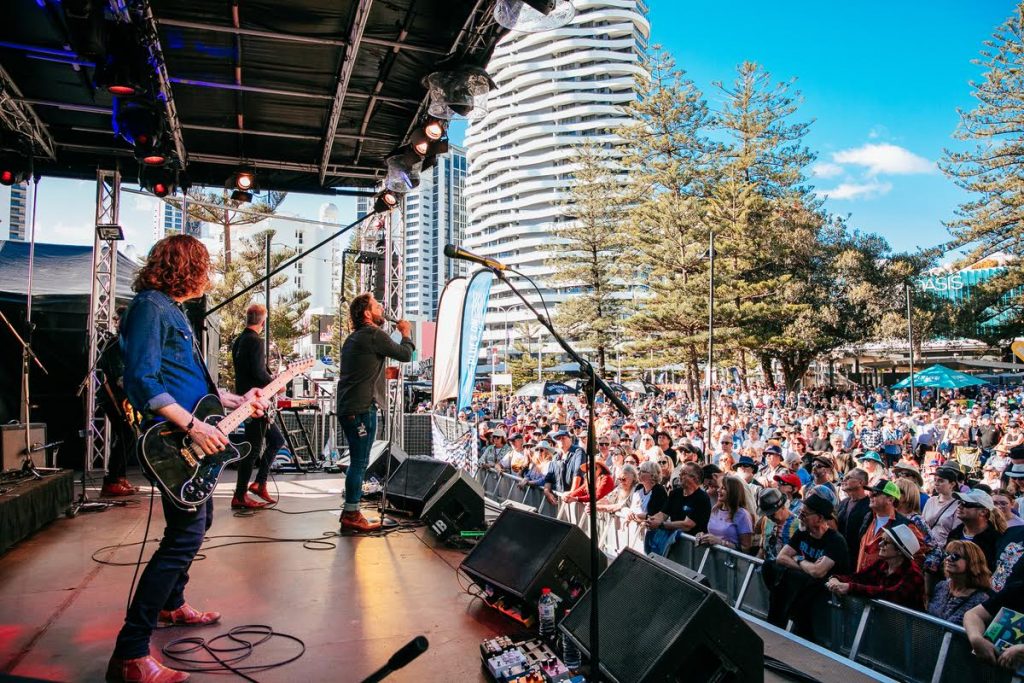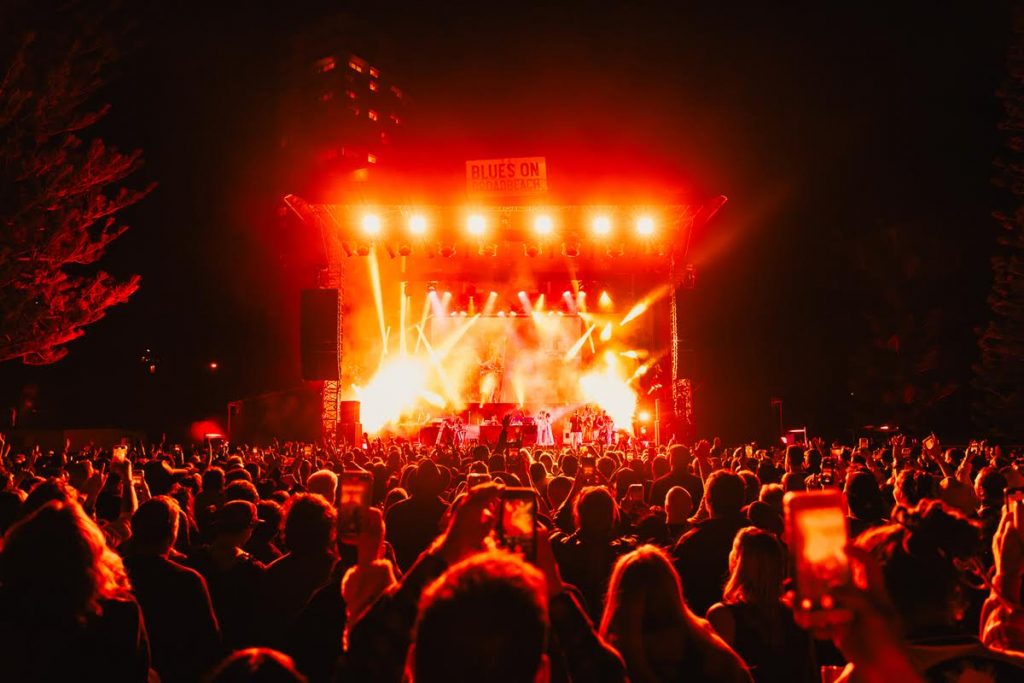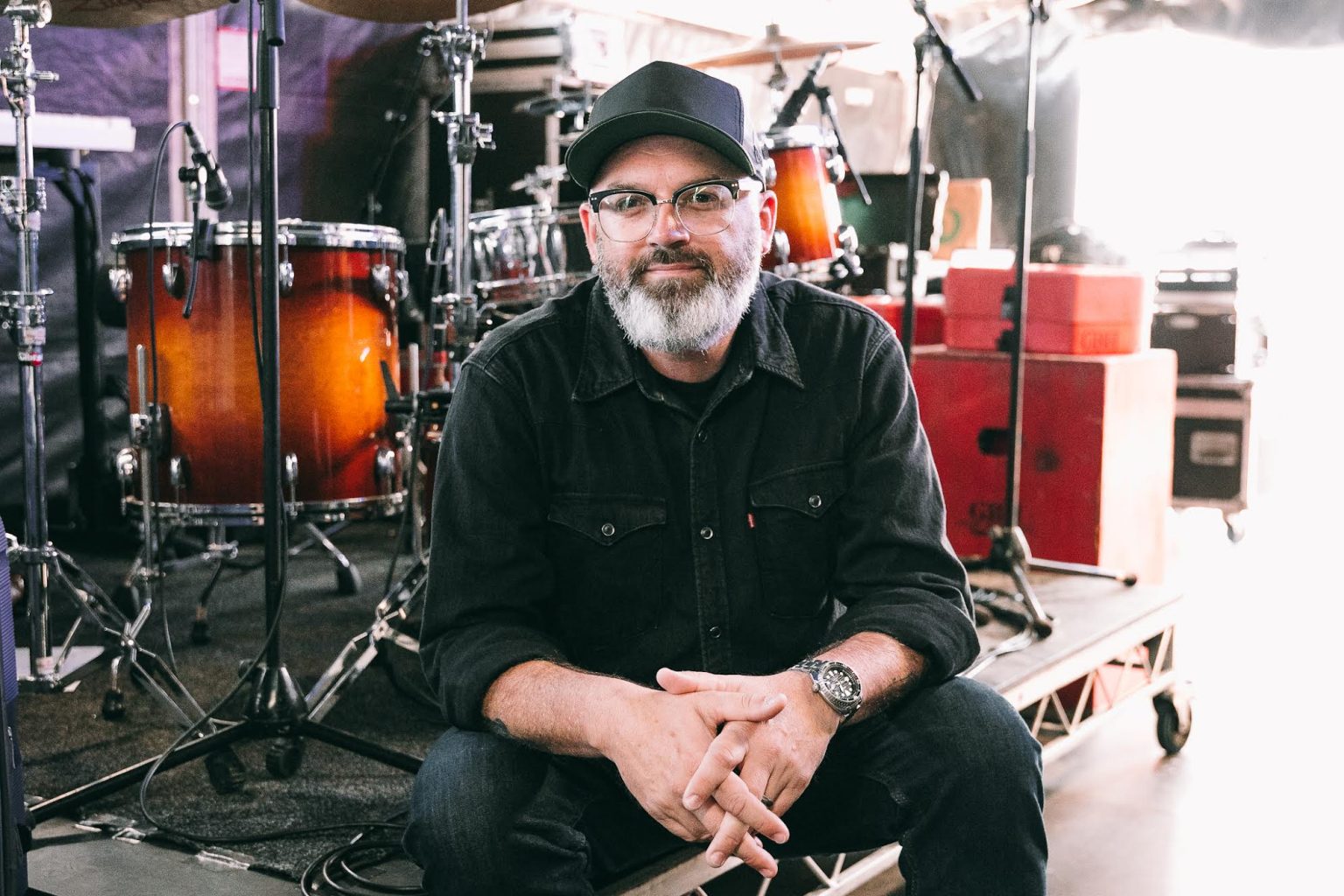Music festivals are being canceled at a concerning rate worldwide. In the US over 10 major festivals have been canceled for 2024, a whopping 43 festivals in the UK have been called off this summer, and in Australia more than 20 festivals have called it quits since 2020. The cost of living has risen, and operational costs have skyrocketed. So, what does it take to keep a festival alive and thriving? American Blues Scene caught up with Blues on Broadbeach director Mark Duckworth to discuss just that.
For 23 years Blues on Broadbeach has been an integral part of bringing tourism to Australia’s sunny Gold Coast, offering a free festival to the public all while keeping the blues alive. Mark joined the team 12 years ago after suggesting some fundamental design changes and has since brought the festival from strength to strength. While many festivals are hanging on for dear life, Blues on Broadbeach has continued to grow and welcomed its biggest lineup of international acts this year including Jon Cleary, Ana Popovic, Samantha Fish, Eric Bibb and more. Mark says Blues on Broadbeach’s success is all in the curation, staying true to the blues, and the convenient location.
“We started out as a free music festival 23 years ago and it was built to bring tourism to the city, and it was humble and small and then over time it has turned into a beautiful monster, a really big festival. I think it’s been a mixture of good curation, and the vibe of the festival, being near the beach, it’s set up for tourism so it’s easy for people to get around and go to bars and restaurants…
“There’s been a really good blues scene in southeast Queensland for a long time, so I think they really supported it in those early years and built that community. We see a lot of blues clubs from all parts of Australia trying to make the pilgrimage each year, and the fact that it’s pretty much stayed true to the core style of music means those people who are slogging it out on the blues scene all year round come and get to play at Broadbeach once a year and hang out. It’s like a big festival tribe that sees each other annually and it’s nice to sit and watch.”

However successful the event may be, running a free festival means a strict budget, and to keep things afloat Mark spoke of the importance of implementing select ticketed events.
“This year we’ve added an event called The Kurrawa Park Sunday ticket. We have had different ticketed experiences over the years, and we have our membership club as well, but this is a new addition this year and we’ve got Fat Freddy’s Drop (NZ) coming to play and it’s their only Australian show of the year. We had the opportunity so we figured out how we could make it work and that was a ticketed show.”
Their decision to add a paid show has seen mixed reactions from attendees, but Mark says it’s not something he will shy away from doing again in future to ensure the festival can remain at a certain caliber.
“As a free festival we have a budget that taps out at some point, so if we can get extremely cool high-profile acts who want to come and do stuff and they’re open to adding to the festival experience then we would do ticketed again for sure.”
When it comes to bringing in high profile acts, keeping them happy and ensuring they have everything they require is essential to keep the reputation of a festival intact and the musicians coming back. In Mark’s case going the extra mile has led to some memorable moments on the job.

“We had Robert Cray play here, and he was really particular about some amplifiers he wanted. They were really hard to find, but we got them all. And the moment he plugged them in at soundcheck and pulled the tone I was like, “Ah, ok this is exactly why he needed all of that!” So that was really cool. Eric Burdon and The Animals came and played, and Eric was really complimentary of the event. I’ve been listening to his records since I was a kid, so to have someone genuinely stop and ask to have a chat was really special. He even asked for a festival shirt, switched it out for the shirt he was wearing and went on stage in it. That was a really special moment for me.”
In future Mark says he would love to get Joe Bonamassa, Eric Clapton, and Alabama Shakes on the festival’s lineup, and refuses to believe it’s an unachievable goal. He says it’s the belief that anything is possible that has gotten them “this far.”
Whether God shows up on the Gold Coast for a weekend of face-melting solos or not the future of the festival is in great hands. While Mark says they don’t intend to make any big changes in years to come, staying relevant and continuing to consider the audience and artist experiences should be a recipe for success.
“It’s going to be coming up to 25 years very soon, so I think we will continue being true to what the festival is, showcasing good music, and giving both the artists and the public a good experience. I feel like it will just continue to evolve and become a part of the city’s tapestry, which it has been for years. I don’t know that we’ll make too many changes, but we just have to stay relevant because obviously the audience for blues is getting older, so we have to be able to excite people about younger and newer acts.”
Keeping a music festival afloat is a delicate dance, and Mark Duckworth and the Blues on Broadbeach team have no plans on joining the ever-growing festival graveyard anytime soon. Blues on Broadbeach will run from the 15th to the 18th of May 2025.


